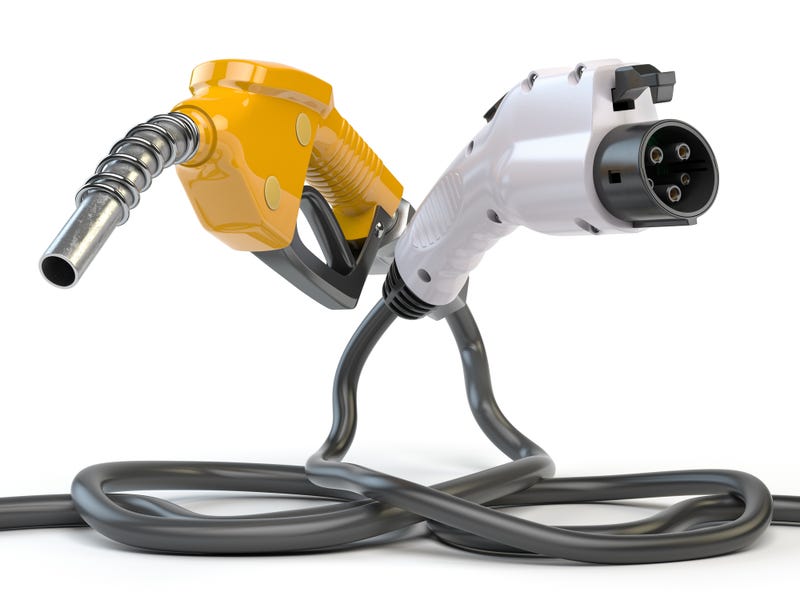
After years of listening to callers on my radio show, I've learned one thing for sure: people have strong opinions about cars, especially when it comes to EVs versus gas-powered vehicles. Some argue that EVs are the key to saving the planet, while others claim they're just as bad—if not worse—for the environment. I've even had callers who believe the government is forcing EVs on us, while others think we should be pushing even harder for alternative fuels like hydrogen or synthetic gas.
The truth? There's no one right answer. And that's the beauty of today's car market—everyone has options.
EVs vs. Gas: The Environmental Debate
A recent Automotive News article examined the real environmental impact of EVs versus traditional gas cars. The study found that, over a vehicle's lifetime, EVs generally have lower emissions than gas-powered vehicles. But that's not the whole story. EVs don't magically eliminate pollution—battery production, electricity sources, and even how long a car stays on the road all play a role in its environmental footprint.
If you live somewhere that relies heavily on coal power, an EV's benefits aren't as big as they would be in a place where electricity comes from renewable sources. On the flip side, traditional internal combustion engines have gotten cleaner over the years, and synthetic fuels could help cut emissions even further.
This isn't about pushing one side or the other. It's about understanding that every type of vehicle has some impact. Instead of using that as a reason to pick a fight, let's use it as a reason to make informed decisions that fit our lives.
The Government Isn't Taking Away Your Gas Car
Many people who call into my show worry they'll be forced to drive an EV. And while there are definitely policies pushing toward cleaner transportation, no one is coming for your truck or muscle car. The U.S. government has created incentives to make EVs more attractive—things like tax credits and emissions standards—but the market is still full of gas, diesel, hybrid, and alternative fuel vehicles. If you love your V8, you still have choices.
At the same time, EVs aren't a passing trend. Every major automaker has invested billions into electric technology, which means those choices will keep growing. That doesn't mean you have to buy one, but it does mean more options for those who want them.
It's Not One-Size-Fits-All
Let's be real: what works for one person doesn't always work for another. I wouldn't expect someone living in rural Montana, where the nearest charger is 100 miles away, to rely on an EV, just like I wouldn't recommend a heavy-duty diesel truck for someone who only drives a few miles a day in a city. A motorcycle isn't practical for a family of four, and a high-performance sports car isn't ideal for snow-covered roads.
It's the same with powertrains. An EV might be perfect for someone who commutes in daily traffic and has a place to charge at home. A hybrid could be the best of both worlds for another driver. And for long-haul truckers or construction crews? Diesel still makes a lot of sense.
So why are we wasting energy arguing about which is "better" when the answer depends on who's driving and where they live?
Make the Choice That Works for You
At the end of the day, we all have the freedom to choose the vehicle that fits our needs, lifestyle, and budget. There's no need to demonize one type over another just because it doesn't work for you.
Instead of making excuses to hate EVs, gas cars, or anything in between, let's recognize that there's room for all of them. The market will continue to evolve, technology will improve, and new options will emerge. What matters is having the information to make the best choice for yourself—not fighting over what someone else is driving.
For more details and results from the EV and gas vehicle emissions study, check out the full Automotive News article here: AutoNews EV vs. ICE Lifecycle Analysis.
